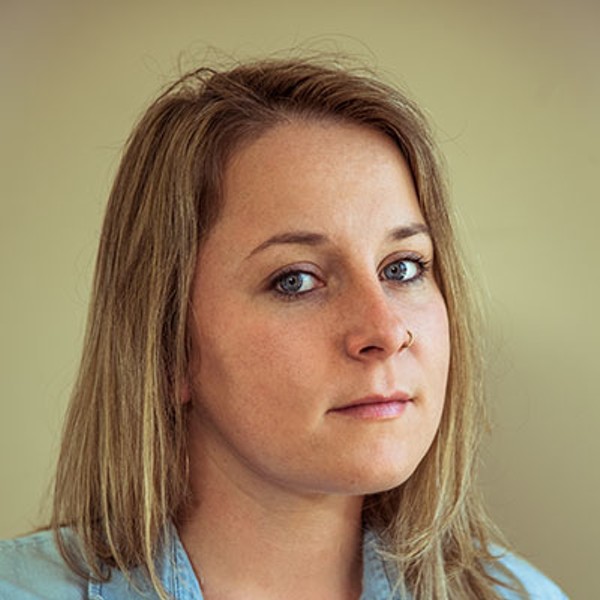
People are hooked. Parents are scared. Slowly, truthtellers are coming out of the shadows to talk about it. After two young deaths from heroin in Woodstock last fall, Kasandra Quednau cofounded Rt. 212 Coalition, a community-support and awareness-building group, with her partner, Shayna Micucci. Three years in recovery from opioid addiction, Quednau has an intimate understanding of the depth of a crisis that is ravaging our communities not just locally but nationwide. Every day, 78 people in the US die from heroin and painkiller overdoses, while many more narrowly escape death with the antioverdose drug Narcan—now a must-have of police officers and emergency workers. Quednau shares her story here, along with Audrey Degondea, a mother and nurse from Kerhonkson, and Paul Arteta, police lieutenant in charge of Orange County's drug task force.
Kasandra: An Ex-Addict's Story
I started drinking and smoking weed when I was in seventh grade. By the time I was 16 I was experimenting with ecstasy, acid, anything I could get my hands on—it gave me a purpose, friends, and a distraction from my life. My friends all had access to Vicodin and Percocet out of their parents' medicine cabinets. The first time I snorted OxyContin it changed my life forever. It took away my friends, family, morals, choices, and any opportunity I had for myself.
It was through drugs that I met my boyfriend, a partner in crime just as in love with opiates as I was. Being addicted was the farthest thing from my mind: I was just a kid thinking I was having fun. When I started getting depressed, even suicidal, I saw a therapist and tried to get off pills. But I felt sick when I didn't have drugs, and that gave me another excuse to get high. I had to get high so I could go to work. So I could be normal.
There are things in life I said I would never do. I said I would never drop out of college, but I was too high to go to class. I said I would never shoot up. Soon pills got more expensive and harder to get. Instead of pills, the drug dealers started having heroin. So we started buying heroin and snorting it. Then my friends took the only natural progression with opiate addiction: They started shooting up. When you hang around something long enough it becomes acceptable. By the time I was 21 I was shooting heroin every day.
Life spiraled down: My boyfriend and I got kicked out of my apartment, he lost his truck, we had no money. When I was dope sick and throwing up on myself, I'd yell and scream and say I'm done with this life. Finally, I left everything and went to rehab for three days. I moved in with my aunt, started waitressing and rebuilding my life. I stayed away from heroin for six months. Then I talked to my boyfriend again; he told me he was using and I thought I could save him. I got high the next day. Soon after, I overdosed and he had to call 911. I was a slave to heroin all over again.
The desperation you feel when you're addicted will drive you to make choices you never thought you would make. I burglarized an innocent person's home just so I could get my next fix. At my sentencing the judge allowed me to attend a shock incarceration program so I could be eligible for an early release. It was a six-month military prison boot camp. I could have only one 10-minute phone call every two weeks, three-minute showers, and four minutes to eat. It was the hardest experience of my life, but I was able to focus on the reasons I ended up there in the first place. I started to forgive myself and others, and that's when everything changed. My aunt allowed me to move in with her upon my release. She never stopped helping me or believing in me.
I enrolled back in college and received a 4.0 my first semester. I saved up for a downpayment on a new car and finished parole early because of good behavior. A year to the day of my release, I signed the lease for my new apartment. I took a state credentialing course to become a certified alcohol and substance abuse counselor, making it my mission to fight addiction for myself and others. I have turned my life around and am greater now than I ever imagined.













